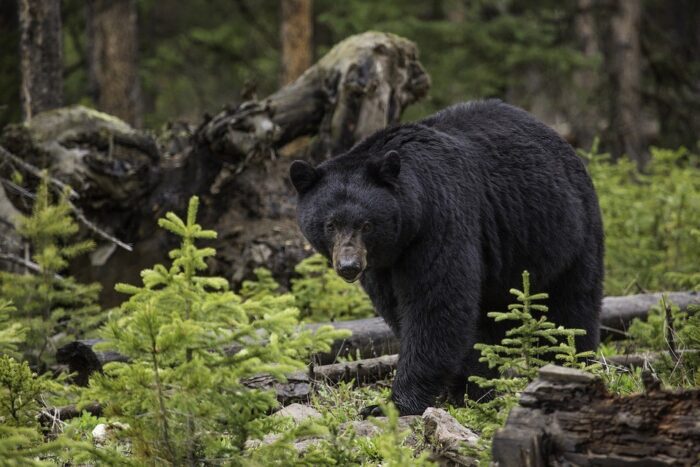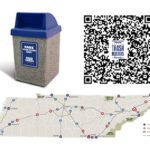
Image courtesy of TWRA
Summer in Tennessee is the perfect time to hit the road and explore the state’s stunning scenic byways, but with increased travel, we also have the increased responsibility of bear safety and protecting our precious wildlife and the places they live. According to TWRA’s bear-conflict reports, the summer travel season is when bears in Tennessee become more active. TDOT also sees an uptick in litter on the state’s roadways and along scenic byways in the summer. To combat this problem, TDOT teamed up with TWRA this summer to remind residents and visitors to be vigilant and safe during the summer travel season.
By following these seven essential tips below, you can enjoy Tennessee’s breathtaking surroundings and help protect its wildlife and the beautiful state they live in too.
1. Be Sure to Secure Your Trash
Securing your trash is essential to keep wildlife safe. Animals that have access to trash can lose their natural fear of people This can lead to harmful interactions with humans. When you can, use heavy-duty bear-proof trash cans, but when they’re not available, be sure lids are tightly closed and trash is in the proper receptacle to reduce the risk of attracting wildlife.
2. Remember Food Waste is Litter
That apple core might seem harmless, but it’s more dangerous than you think. Disposing of food litter incorrectly can harm an animal directly if ingested, but it also attracts wildlife to populated areas. This increases the risk of auto accidents and dangerous encounters with humans. Properly disposing of food waste protects animals, humans and the ecosystem.
3. Don’t Feed or Approach Bears or Other Wildlife
Whether you’re hiking, camping, or just enjoying the view, always keep a safe distance from bears and other wildlife. This is crucial for both the bear’s safety and yours. Feeding wildlife can be harmful to you and extremely dangerous for them. According to TWRA, bears attracted to human food sources, or that are deliberately fed by humans, tend to have significantly shorter lifespans.
4. Store Food Properly When Camping or Hiking
When camping, always store food in a cooler, metal bear box or vehicle. If no other option is available, you can hang food from a high tree branch. Be sure any food waste is stored properly or placed in the proper receptacle. Wherever you place food and food waste, be sure to keep it a safe distance away from your tent. Even when hiking, keep all food secured in a cooler or your vehicle when possible, so you don’t attract unwanted visitors..
5. Keep Your Distance if You Spot a Bear
Seeing a black bear from a distance is a thrilling experience, but according to the National Park Service, bear safety is key in this situation. Be sure to keep your distance and do not surprising them. It’s best to alter your route, return the way you came, or wait until the bear leaves the area. Respect their space to avoid unnecessary encounters. If you witness aggressive behavior by black bears, contact TWRA immediately at TWRA Law Enforcement.
6. Make Your Presence Known
Bears generally prefer to avoid humans, so make some noise! If a bear happens to surprise you, stay calm. Make your presence known by yelling and shouting to try to scare it away. Stand your ground, raise your arms to appear larger and throw rocks or sticks until they retreat.
7. Know What to Do If Attacked
Do not play dead! If a black bear attacks, fight back aggressively. Use anything you can find to defend yourself—pepper spray, sticks, rocks. Never run from a black bear, as this can trigger its instinct to chase. Instead, back away slowly while always facing the bear at all times.
For additional information bear safety and about what to do when encountering a bear while hiking and camping TWRA encourages you to visit, bearwise.org.
TDOT encourages visitors and residents alike to enjoy our beautiful state and dispose of litter responsibly. Let’s make this summer travel season safe and memorable for everyone—humans and wildlife alike!




